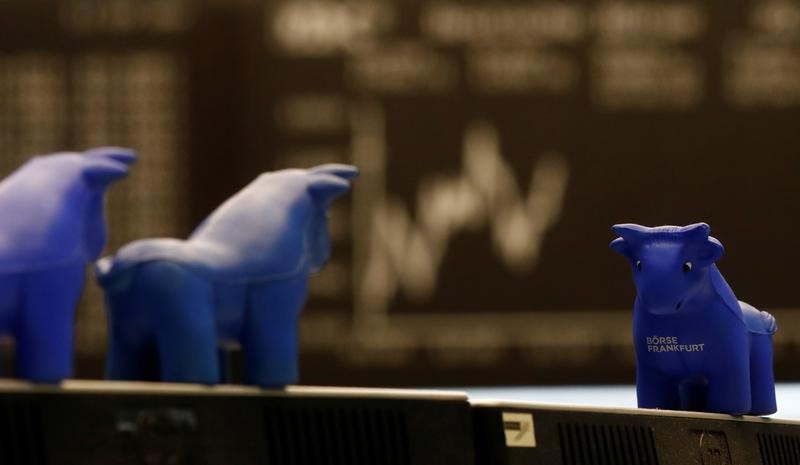Intel stock extends gains after report of possible U.S. government stake
Investing.com - European stock markets traded in a mixed fashion Thursday, as investors digested more corporate earnings with the tech sector particularly fragile following weak cues from Wall Street.
At 03:40 ET (07:40 GMT), the DAX index in Germany traded 0.1% lower, while the FTSE 100 in the U.K. gained 0.5% and the CAC 40 in France rose 0.1%.
Earnings season starts to ramp up
The quarterly earnings season is starting to ramp up in Europe.
Nokia (HE:NOKIA) stock fell 0.6% after the Finnish telecom gear group reported a drop in second-quarter profit as growth in sales of 5G gear in low-margin markets such as India failed to offset slowing demand in North America.
Volvo Car (ST:VOLCARb) stock fell 4.8% after the Sweden-based automaker reported a 54% fall in second-quarter operating earnings with last year's profit was boosted by a one-off gain, while also acknowledging pricing pressures ahead.
Electrolux (ST:ELUXb) dropped 10.7% after Europe's biggest home appliances maker swung to a loss in the second quarter.
On the flip side, Saab (ST:SAABb) stock climbed 3% after the Swedish defence group raised its organic sales growth guidance, while Publicis (EPA:PUBP) stock soared 4.3% after the French advertising giant lifted its 2023 guidance on the back of steady organic growth in its second quarter.
Netflix, Tesla misses weigh on tech sector
A lot of attention is on the tech sector Thursday after streaming giant Netflix (NASDAQ:NFLX) reported a miss with second-quarter revenue despite the addition of 5.9 million new streaming customers.
Additionally, EV manufacturer Tesla (NASDAQ:TSLA) said its profitability shrank in the second quarter, with CEO Elon Musk signaling he would cut prices again in "turbulent times", as his price war on automaker rivals hits the company's own margins.
In Asia earlier Thursday, Taiwanese chipmaker TSMC (NYSE:TSM) posted a 23.3% fall in second-quarter net profit as global economic woes dented demand for chips used in various applications.
German producer prices fall
German producer prices fell 0.3% on the month in June, suggesting inflationary pressures are lessening in the eurozone’s largest economy.
Data released Wednesday confirmed that eurozone inflation rose 5.5% on the year last month, a drop from 6.1% the prior month.
The European Central Bank is widely expected to raise its benchmark rate by 25 basis points next week, but what comes after that has been up for debate in the wake of the recent dovish tone taken by the central bank's policymakers.
In the U.S., jobless claims and housing sales headline an otherwise sparse data calendar later Thursday.
Oil prices steady despite falling U.S. inventories
Oil prices steadied Thursday after losses this week on the back of a strengthening dollar, making crude more expensive for foreign buyers, and with U.S. inventories falling less than expected.
The Energy Information Administration announced Wednesday that U.S. crude stockpiles fell by 708,000 barrels last week, much lower than expectations for a 2.4 million barrel draw.
This suggests fuel demand was struggling in the world’s largest consumer despite the travel-heavy summer season, as it followed a bigger-than-expected build in the inventories the prior week.
By 03:40 ET, the U.S. crude futures traded 0.2% higher at $75.43 a barrel, while the Brent contract dropped 0.2% to $79.61. Both contracts are on course for losses of around 2% this week.
Additionally, gold futures rose 0.1% to $1,982.35/oz, while EUR/USD traded 0.1% higher at 1.1202.
